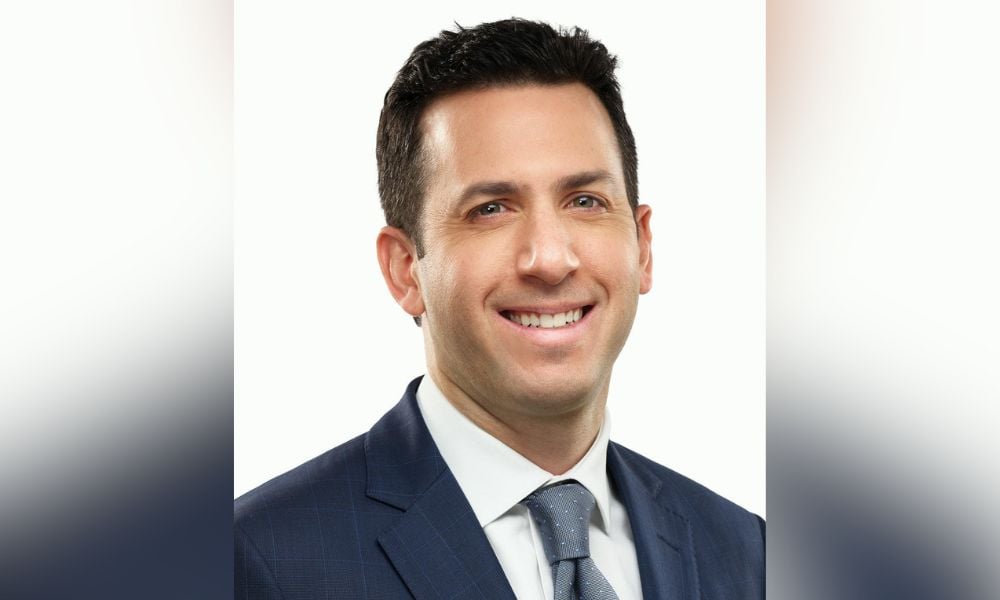
Clients have been clamouring for new pricing models

Generative artificial intelligence could be the catalyst that portends the long-predicted death of the billable hour.
“Clients have been clamouring for new pricing models for some time, and generative AI - which can produce answers in seconds instead of hours - could well be the inflection point,” says David Cohen, the Toronto-based, senior director, client services delivery at McCarthy Tétrault LLP.
The firms who can extract the most benefit from AI will have a leg up, says Rahim Esmail, the Vancouver-based senior counsel at Telus Legal Services.
“Law firms that can leverage AI in a way that makes them more efficient without sacrificing the soundness of their advice will probably win more business from clients than firms who adapt more slowly. Some will focus on strategic advice in transactions that are less amenable to AI, and they may not be impacted at all. So you might see a shift in the landscape where firms focus on one or the other, or combining both but in separate units.”
According to Cohen, McCarthy and other firms have been examining the interaction of generative AI and value-based pricing.
“General counsel want to know what we’re seeing and what it will mean in terms of cost savings.”
But not everyone’s on board – at least not at this early stage.
“Our discussions with external counsel have been mixed,” Esmail says. “However, even the firms who have been very cautious not to use AI with respect to clients believe that it’s a game changer and are thinking about how they will use it in the future.”
As it turns out, the clients may be ahead of the game: certainly Telus, which recently formed an innovation committee focusing on how AI can deliver services more efficiently, seems to be.
Already, the team has created a customized tool for using ChatGPT in particular.
“Our technical staff has eliminated some of the challenges, including assuring that the information used to train the model is not using confidential personal data in prompts,” Esmail says.
To begin with, AI has made creating newsletters and bulletins internally and for the company’s business units much more efficient.
“For example, if we want to explain a concept like indemnity to our contract managers, ChatGPT gives us a huge headstart on turning out that kind of legal information,” Esmail says.
Ultimately, the legal team is looking to create a “playbook” for the contract managers who negotiate many lower-value deals without a lawyer involved.
“Sometimes one of these deals stalls or takes up legal resources when it doesn’t have to because the managers feel they’re not in a position to negotiate on some provision,” Esmail says. “Our playbook would help them understand the risks behind certain provisions and provide them with alternative language if the other side has an issue with our standard language.”
Telus has also used ChatGPT to retroactively examine the main issues customers might have with suppliers’ terms.
“The list allows us to identify the contentious issues we really care about, and we’re starting to think about how to deal with these issues going forward in a way that minimizes review time by lawyers,” Esmail says.
To this end, Telus has found that ChatGPT can, for example, turn out three versions of a limitation of liability provision: one that is neutral, one that is supplier-friendly, and one that is buyer-friendly.
Otherwise, Telus’ legal team has also taken to recording training sessions.
“We dump the transcripts into ChatGPT, which creates a one-page summary for people who missed the meeting so they can quickly decide whether to view the entire video,” Esmail says.
Caravel Law in Toronto, a legal service provider to business, has focused on innovation since its inception almost two decades ago. The firm has been experimenting with Harvey, a form of generative AI customized for lawyers.
“One of our lawyers, for example, likes to draft his contracts in plain language,” says Monica Goyal, Caravel’s director of legal innovation. “He uses Harvey to provide him with plain language that allows him to personalize his contracts.”
To be sure, the short lifespan of generative AI has already seen its share of debacles, including flagrant errors and what’s being called “hallucinations.”
“That’s why we never use it without having a lawyer validate what it’s doing,” says Andrea Wood, Telus’ Toronto-based chief legal and governance officer.
However that may be, the general consensus is that AI will shake the profession’s foundations.
“I haven’t seen this level of excitement in the 20 years since I’ve graduated,” Cohen says. “And that excitement’s coming from everyone, not just the tech-savvy folks.”